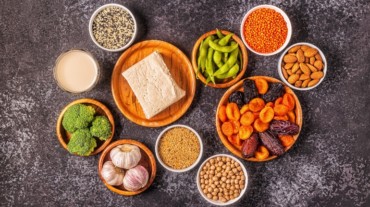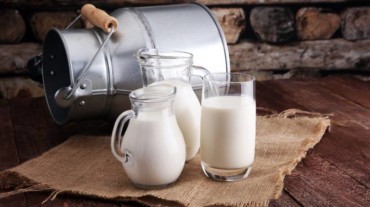
Much like hitting puberty, menopause can be a turbulent time in a woman’s life. Why with her hormone’s going haywire and resulting in weight gain and hot flashes–amongst other things–a menopausal woman has to bear a whole lot.
If your mum is between the ages of 45 and 55 and has not menstruated for 12 consecutive months–then well, she is menopausal.
Here is what can happen to your mom’s body as she hits menopause
During the transition to menopause, a woman’s body sees a decline in the hormone oestrogen. This leads to a disruption in the cyclical patterns of oestrogen and progesterone–which in turn leads to weight gain, hot flashes, and difficulty in sleeping.
In fact, a study, conducted by Wayne State University School of Medicine, Detroit, found that hot flashes–the rapid heat dissipation response, consisting of profuse sweating and feelings of intense heat internally–is linked to estrogen depletion at menopause.
But thankfully, you can make this uncomfortable time for her bearable by encouraging her to eat right and paying extra attention to her diet.
Here is what a menopause diet looks like
Dairy: The declining level of oestrogen in the body can increase the risk of fractures. A Geneva University Hospitals and Faculty of Medicine, Switzerland study found that consuming three servings of dairy products per day may help women achieve the recommended daily intake of nutrients essential for good bone health. This, in turn could improve bone health and reduce risk of fractures later in life.
Dairy products such as milk and cheese contain calcium, phosphorus, potassium, vitamins D and K, and magnesium–all of which are important to maintain bone health.

Scientists have also found that foods that are high in amino acid glycine, like milk and cheese helped menopausal women get deeper sleep.
Salmon, mackerel, and other fatty fish: Fatty fish like salmon and mackerel contain healthy fats such as omega-3 fatty acids which may benefit women going through menopause.
Scientists from Oklahoma State University, USA found that postmenopausal women benefit from regular consumption of flaxseed as well by reducing their risk of cardiovascular disease as seen from lowered LDL-C and total cholesterol levels.
Select Topics of your interest and let us customize your feed.
PERSONALISE NOWSalmon, which is high in omega 3 fatty acids, is linked to reducing night sweats and breast cancer risk.
Barley, quinoa and other whole grains: Whole grains are high in nutrients like fibre, thiamine, niacin, riboflavin, and pantothenic acid. Studies have found that eating 4.7 grams of whole-grain fibre per 2,000 calories per day reduced the risk of early death by 17% in postmenopausal women.
Broccoli: A cruciferous vegetable, broccoli can be extremely beneficial for menopausal women. A study, conducted by the University of Massachusetts Medical Center, USA found that broccoli increases the oestrogen levels in a woman’s body that reduces breast cancer risk (which increases post menopause). It is also full of calcium and fibre which prevents bloating and weight gain in menopausal women.

Grapes, berries, and other phytoestrogen-containing foods: Foods like soybeans, chickpeas, peanuts, grapes, berries, green and black tea which contain phytoestrogens have been found to be beneficial for women going through menopause. Scientists say postmenopausal women who take soy supplements have 14% higher oestrogen levels in their body than those who don’t.
So, encourage your mother to eat better and make menopause a breeze to deal with.